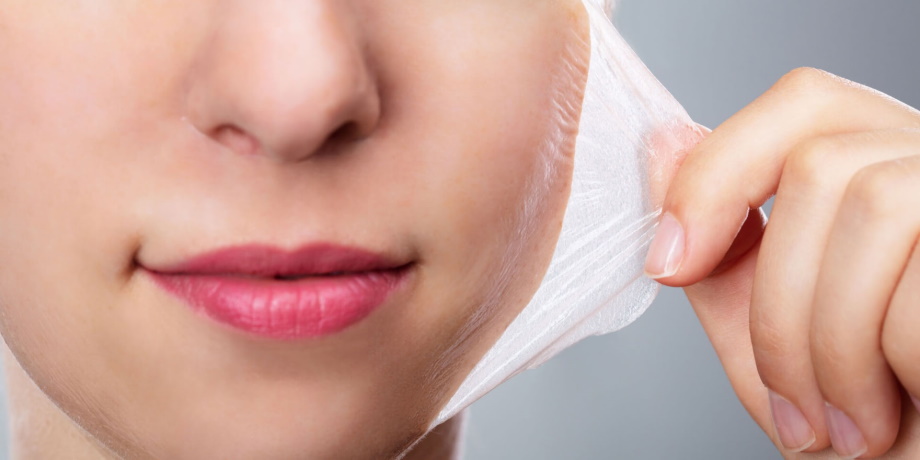Why Should I Peel My Skin
- Published in Skin & Facial Treaments
- Permalink

We speak about an exfoliation procedure that removes dead skin cells. Peeling offers a wide range of benefits. For example, removing dead skin cells can help prevent clogged pores, leading to breakouts, blackheads, and other blemishes.
Peeling can also help reduce the appearance of wrinkles and fine lines by stimulating collagen production in the lower layers of your skin. Additionally, it helps promote cell turnover, which aids in reversing sun damage and reducing discoloration caused by hyperpigmentation.
Finally, peeling can help boost hydration levels in your skin as it removes any buildup preventing moisture from penetrating deeper into your complexion. As a result, skin can better absorb moisturizers and other skincare products, making them more effective.
How often should you do skin peeling?
The frequency of skin peeling depends on the type and strength of the peel you’re using, your skin type, and overall goals. For example, superficial peels are typically done every 1 to 6 weeks, depending on the intensity. Medium-depth chemical peels are usually performed every 8 to 12 weeks, while deeper peels may need to be done only a few times a year.

What are the types of skin peeling?
The two most common types of skin peeling are chemical peels and mechanical exfoliation. Both types of skin peeling can be performed at home or in the salon, depending on your specific needs and preferences.
Chemical Peels
It involves using a chemical solution for the skin, usually containing acids such as glycolic acid, lactic acid, salicylic acid, or trichloroacetic acid. These acids work by removing the top layer of dead skin cells and stimulating new cell growth in the deeper levels of the epidermis. The solution is applied directly to the skin, usually in the form of a liquid or gel, left on for a set amount of time, and then removed by either wiping it away or rinsing it off with water.

Mechanical Exfoliation
This procedure involves manual techniques like scrubbing with rough cloths or brushes and using abrasive products like sugar scrubs, salt scrubs, and microdermabrasion.
It is important to remember to use gentle pressure when using mechanical exfoliation so that you don’t damage the delicate tissue on your face.
What are the disadvantages of skin peeling?
The biggest disadvantage of skin peeling is the potential for unwanted side effects, including scarring, irritation, and infection. In addition, skin peels can be harsh on sensitive or thin skin, and they may cause redness and swelling in some cases. Peeling treatments can also make the skin more sensitive to sun damage because they strip away natural oils that protect the skin from UV rays.
People with certain medical conditions, such as eczema, should talk to a doctor before trying any type of skin peel, as it could worsen their condition.

 Founder of GretaBean, certified child development therapist, certified teacher, author, wife to Steve, and mom to our four (wonderful) children. Here you’ll find encouragment, ideas, recipes, activities for kids, organizing tips, and anything else that can make your day a little better! 🙂
Founder of GretaBean, certified child development therapist, certified teacher, author, wife to Steve, and mom to our four (wonderful) children. Here you’ll find encouragment, ideas, recipes, activities for kids, organizing tips, and anything else that can make your day a little better! 🙂